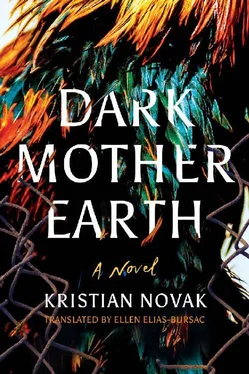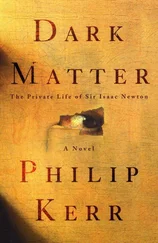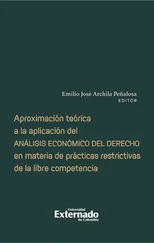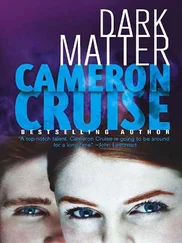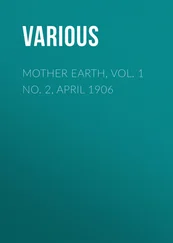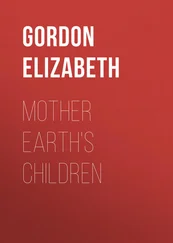The next morning my sister came into my room and saw that everything was topsy-turvy. My desk was upside down, and there was a flowerpot on the floor. I told her my friends had gotten into a fight.
“Who was here who made such a mess?” she called down to Mom, who was ironing.
“Mess?” shouted Mom back. “Not a soul’s been here. Is this a joke?”
“See for yourself. Matija says his friends came over and made a mess of his room. A flowerpot’s on the floor.”
By the time Mom came up, I was on my hands and knees, doing what I could to clean and come up with a good story, but all I did was spread around the soil that had spilled from the flowerpot. I said the mess was made by some friends I’d invited in from the dark, and that they were naughty sometimes and often squabbled. I have no idea how I managed to speak so calmly when I was so furious. My sister looked at me, appalled. I can understand how I managed to forget everything else, but I can’t for the life of me figure out how I succeeded in forgetting that look of hers. I can see it even now. Hers was a gaze of pure horror. Her face had gone pale, mouth agape, and her eyes were two wide saucers.
Later I heard Mom saying that I’d probably made up the story to avoid the blame, but my sister said she’d heard me talking every day with somebody who wasn’t there and that I walked around the house at night. Mom came back to my room and helped me clean up. She told me I could tell her anything and she wouldn’t be mad. She asked when one of my school friends might come over, maybe Damir or Silvija, and said that she’d make us sandwiches and crepes. I didn’t respond.
I told Bacawk and Chickichee they were no longer welcome in the house. But this time there were no bowed heads or empty apologies.
“We’ll see about that,” said Bacawk menacingly, and Chickichee scowled over Bacawk’s shoulder.
The next morning, while I was drinking my cocoa and Mom was filling jars with her homemade jam, we heard Granny’s voice outside. Mom went out, and I could only hear bits of Granny’s trembly nasal words, but I gathered that something had gotten into her coop that night and killed some of her chickens. When we went to take a look, the air in the coop was dry and hot, though the morning was foggy; bloody feathers were floating around and hanging on the fence. Granny went from one chicken to the next, stroking them and laying them in a wooden apple crate.
That evening, while we were sitting in Granny’s kitchen drinking tea in silence, our old car pulled up to the gate, and out came the man in jeans with the mustache. Through the window I watched him load the box with the dead chickens into his trunk, and then he came in to give Granny money. Granny peeled off one bill, which she slipped into her apron pocket, and gave the rest to Mom.
I knew Bacawk and Chickichee were responsible for this. I could hardly wait for morning. I imagined how I’d hit and kick them until they hung their heads in shame. The next morning I told Mom I was going to Granny’s before school because my teacher said I should bring in a seashell souvenir of hers because some kids’d never been to the seaside and had never seen a seashell. Of course, I never even said hi to Granny but went straight to the chicken coop. I threw my schoolbag into the grass.
“Bacawk! Chickichee!” I yelled. I had to repeat the summons several times before they stepped out of the gloom.
“What did you do to the chickens?” I asked, furious. “You were supposed to be taking care of them! Where were you?!”
The two of them exchanged looks. Chickichee grinned and hissed: “We were right here, nowheres else.”
“Want more?” jeered Bacawk. “I’ll off the rest of them, lickety-split. Bring them into your house, why don’t you, if you love your chickens more than you love us.”
Everything went black, and I flung myself on the smaller of the two. I slid across the mud, grabbed him, and tried to smash my whole fist into his huge green eye. My hand froze when I saw up close that, instead of a tongue, his mouth contained a bundle of fat pink mudworms that suddenly burst out. I pushed him away and turned to Bacawk and kicked him in the head as hard as I could. I fell onto my back, and he rolled toward the old horse cart. He leaped up, grabbed me by the hand, and tore a patch of cloth the size of a handkerchief from my jacket. Two huge claws sprang through his coat from his elbows, and he jabbed them at my head. His second lunge only just missed me, but he did scratch my face from ear to chin. I stepped back and groped behind me for the chicken-wire gate. I couldn’t find the latch.
“Consarn them chickens! Consarn them chickens!” I shouted. Bacawk and Chickichee always melted back into the gloom whenever Granny said that.
“You should never’ve summoned us,” said Chickichee.
I finally managed to open the gate, slip through it, and close it, leaning against it with all my weight. We glared at each other through the chicken wire.
“What did you think? You could do as you please with us?” asked Chickichee. “Throw us out? Just you wait, you’ll see hell. Just you wait, you’ll see black earth. We’ll show you.”
“What do you want?” I asked, gasping for breath.
“What we want, you can’t give us. We’ll take it for ourselves,” Bacawk said, leering. “First we’ll kill all the other chickens, then we’ll kill your granny. We’ll stab her with a knife, right in the back. Your uncle and his wife—we’ll chop off their heads while they’s sleeping. Then we’ll set your mother on fire. We’ll pour gasoline all over her and burn her alive.”
“Whatever you care about, we’ll take it from you, and you we’ll leave for last. You’ll be alone in the house, and anybody who comes to visit, we’ll kill them,” Chickichee added, and clapped his hands together.
“I’ll tell on you—don’t even think about hurting anybody,” I tried to shout, but all that came out was a desperate whisper of a croak.
“Who’ll you tell?” asked Chickichee with a knowing smile. “Nobody believes a word you say, you’ve already lied to everybody.”
“My daddy, he’ll come and…” I couldn’t go on, so with my ripped sleeve I wiped away my tears. They were mixed with blood.
“Your daddy ain’t coming. You can’t lie to us. Do you know where your daddy is? You don’t. But we do.”
I thought they’d torment me by saying nothing, but Chickichee could hardly wait to say it.
“Your daddy, he’s being held by the will-o’-the-wisp folk up there in the forest, in the hills. Are you going to go get him?” he said. They staggered around in the mud, roaring with laughter.
“There ain’t no will-o’-the-wisp folk. Or Mura maidens neither. I was down by the Mura at midnight, and there was no sign of them! They’re not for real!” I said, though I wasn’t entirely sure.
I arrived at school that day covered in mud, my jacket torn and my face smeared with tears, dirt, and blood. All the children went silent, and the teacher said, “Jesus,” but then she remembered she didn’t believe in such things, so she said, “Wowee.” She took me to the washroom so I could splash my face and wipe off my pants, and she said I should bring Mom to school with me the next day.
I went back to class and, strange as this might seem, for a little while I forgot that Bacawk and Chickichee had threatened to kill everybody I loved. I sat with a boy we called Krunek and glued a collage onto cardboard. For a whole week Krunek hadn’t said a word because he hadn’t been able to pronounce sixth right. He’d said sick or something like that, and he said it like that a few times, so the other kids laughed at him. I told him how my dad was going to show those guys who came to kill the chickens a thing or two. Only at the end of the day did I realize I was actually describing Dejan Kunčec’s father, not my own. He was the big burly one who dared to say, “Honest t’ God.” I needed somebody like that. For a moment, with all my heart, I tried to remember what my father’s face looked like, and I couldn’t.
Читать дальше
